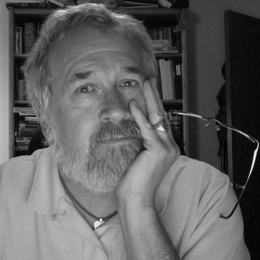When Families Keep the Truth From Their Dying Loved Ones
A retired pastor and current hospice worker shares important observations
(This is a personal essay by retired pastor Larry Patten, who now works in a Fresno, Calif., hospice facility.)

Answering the innocent question of what I do for a living can kill a conversation.
I work in hospice services, and have visited people in their homes, hospitals and skilled nursing facilities when they have months or weeks to live.
Even our patients and families want to avoid talking about my job. Often enough, a hospice staff member is asked to not wear his or her name tag when visiting a patient.
A Silent Conspiracy
A loved one is nearing death, but the family doesn’t want them to know. Conversations about “dying” are avoided like the plague. Friends join the hush-hush efforts, though the more talkative or gossipy ones may be left out of any “information loop.” A doctor who concluded there’s no longer the possibility of a cure may join the conspiracy.
Name tags are tucked into pockets. Questions are ambiguously answered. Every effort is made to not be the one to make the mistake and speak the truth.
And so, when a hospice admitting nurse knocks on the front door (because the person’s physician has formally requested hospice) and a family member opens the door (he or she has likely been peering through windows, anxiously awaiting the visit), the nurse is greeted with: “Please don’t wear your name tag.”
A variation of that line frequently comes before, “Welcome and come inside” or “We’re glad you’re here” or “Hope our home wasn’t too hard to find.”
What are the Reasons?
Why such a conspiracy of silence? The answers range from the reasonable to the ridiculous:
- The family hasn’t yet talked about the life-limiting illness of their loved one.
- The destructiveness of a disease can move faster than the time it takes for a family to gather.
- Death is a taboo subject because of the family’s faith, culture or traditions.
- The new hospice patient once ordered the family to never say when there would be only weeks or months left to live.
- Thinking about death causes verbal paralysis for every family member.
- No one wants to “upset” the dying loved one.
- Someone will tell the patient tomorrow. (But tomorrow is always tomorrow.)
- There will be a miracle.
Honoring the family’s wishes, the admitting nurses will pass along instructions to other hospice staff about removing name tags. About not saying they are from hospice. About lying and saying the hospice registered nurses and licensed vocational nurses come from a home health agency; a social worker has been sent by a physician to help the patient complete a few required forms or chaplains will mumble they are part of a care team paid by Medicare (or some other insurance, or whatever) and they're merely there for a friendly "how-ya-doing" visit.
The hospice staff frowns or smiles, but every professional tries to comply.
Name tags are tucked into pockets. Questions are ambiguously answered. Every effort is made to not be the one to make a mistake and speak the truth.
Then Someone Does Tell the Truth
But often enough, truth wins.
A soft-hearted or hard-headed family member tells the patient. Or the irritating uncle that enjoys upsetting everyone (though I’m sure your family doesn’t have anyone like this) spills the beans. For better or worse, we humans can’t keep our mouths shut.
But most of the time when truth “wins,” it’s not the good, bad or gossipy family member telling patients about their illness and hospice’s role. It won’t be the hospice staff making a verbal oops. Nope, most of the time it’s the patient.
The patient asks the question that has become obvious: “Am I dying?”
The patient announces what everyone has schemed to avoid: “I am dying.”
I would argue that ignorance is never bliss. Especially when our life, our breathing and chatting and joking and crying and sharing, is limited.
Whether excuses are “reasonable” or “ridiculous,” take a risk and let the hospice staff wear name tags.
Name the disease. Name the "dis-eases." Name the truth.


